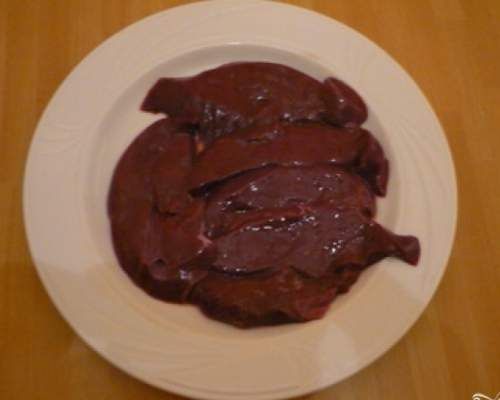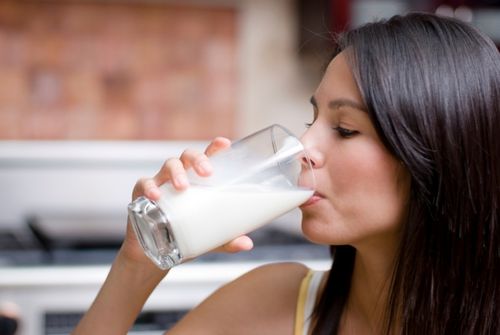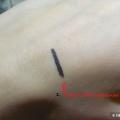What can a nursing mother eat and drink - food, fruits, soft drinks and alcoholic beverages
23 2260802
Photo gallery: What can a nursing mother eat and drink - food, fruits, soft and alcoholic drinks
Nursing mother with baby
Proper nutrition of the mother is the key to the normal development and growth of a breastfed baby. The secretion of breast milk significantly increases the female body's need for energy, therefore, to maintain lactation, it is imperative to adhere to the principles of balanced nutrition. The menu should be complete, balanced in terms of the main components - fats, proteins, carbohydrates and vitamin and mineral composition. What can a nursing mother eat? What drinks are recommended to drink? Can I drink alcohol while breastfeeding? Read about this in our material.
Benefits and composition of breast milk
The calorie content of breast milk varies between 68-75 kcal / 100 ml. The protein content is 1.1-1.2 g / 100 ml, fat - 3-5 g / 100 ml, calcium - 18-35 mg / 100 ml, iron - 0.03-0.08 mg / 100 ml, phosphorus - 13 -15 mg / 100 ml, lactose - 5.5-8.4 g / 100 ml. Breast milk is an ideal food for a newborn, guaranteeing healthy digestion, strong immunity, and the absence of allergic reactions. Breastfeeding prevents constipation and colic in the baby, helps to avoid diathesis, and provides the baby's body with all vital nutrients.
 The process of feeding a baby from a nursing mother
The process of feeding a baby from a nursing mother What can a nursing mother eat?
There is no need to adhere to a strict diet that implies many restrictions - this is a relic of the past. The basic rule: food should be tasty and varied. Nutritionists recommend choosing foods that, in the proper amount, will replenish the calories spent during feedings - cottage cheese, herbs, cheese, fish, meat, eggs, oat / buckwheat, dried fruits, apples, cabbage, spinach, tomatoes. You should not abuse butter and sour cream - they increase the fat content of milk, it is better to give preference to vegetable fats. It is useful to keep in sight the "snacks" that do not require cooking (crackers, grapes, figs, bananas), add healthy foods to breakfast - berries in cereals, dried fruits in yogurt, stimulate lactation with plants and herbs (nettle, anise, fennel).
 Feeding process with a feeding bottle
Feeding process with a feeding bottle What can a nursing mother eat in the first month after the birth of her baby?
In the first month of breastfeeding, dietary requirements are particularly stringent. The following dishes and products are allowed:
- dry biscuits, wheat and rye bread, bran;
- fermented baked milk, natural yoghurt (without preservatives, dyes, flavors);
- porridge with milk and water;
- stewed and boiled vegetables: cauliflower, zucchini, potatoes, onions, carrots, white cabbage;
- lean meats: lean pork, rabbit, beef;
- vegetarian soups and unsaturated broths;
- stewed / boiled chicken without skin;
- fermented milk products: kefir, cheese, cottage cheese.
You can not use whole milk - it can provoke increased gas production in a baby, you should not "lean" on industrial juices and compotes, carbonated water and lemonade.

Sample menu for the first week of lactation
- first breakfast: milk oatmeal with the addition of butter (200 grams), biscuits, a glass of weak tea;
- second breakfast: a glass of natural yogurt, a sandwich with cheese, dry biscuits;
- lunch: vegetable soup (150 grams), mashed potatoes (100 grams), low-fat minced meat cutlet (50 grams), unsweetened dried fruit compote, wheat bread;
- afternoon snack: jelly / compote, cottage cheese (100-120 grams);
- dinner: stew (boiled) chicken / turkey meat, vegetable side dish, chamomile tea;
- before bedtime: dry biscuits, fermented baked milk / kefir (150-200 grams).
What can a nursing mother eat after a month?
Gradually, you should expand your daily diet, carefully adding new foods. It is allowed to eat greens (parsley, dill), berries (gooseberries, mountain ash, black currants), fresh fruits (bananas, apples, pears), vegetables (grated carrots, cucumbers, cabbage). In addition to trace elements and vitamins, they provide the baby with dietary fiber, which is necessary to prevent constipation and normal digestion. Adequate intake of protein is an important condition for the correct development of a child; fermented milk products, boiled eggs, lean meat, fish (cod, pike perch) must be present in the daily menu. The priority should be steamed, boiled and stewed dishes. The frequency of meals is 5-7 times a day, ideally every 3-4 hours. The feeling of hunger between meals can be quenched with yogurt, kefir, tea with milk. If you want something sweet, you can eat a piece of biscuit, 2-3 tablespoons of jam or jam.

Sample menu for the second month of lactation
- first breakfast: milk porridge with butter (you can add jam or sugar if you wish), a glass of tea, cheese, bread;
- second breakfast: cookies, natural yogurt, an apple or a ripe banana;
- lunch: cabbage soup / borscht (without frying), baked (boiled) fish, pasta, fresh carrot salad, dried fruit compote / fresh apple juice, bread;
- afternoon snack: cottage cheese, low-fat sour cream (10%), compote / jelly;
- dinner: meatballs with cereal / vegetable garnish, tomato and cucumber salad with herbs, weak tea with jam, dry biscuits;
- before bed: a sandwich with cheese, kefir / fermented baked milk (100-150 grams).

Unwanted foods
Allergies in a baby can be caused by cocoa, chocolate, red berries (raspberries, strawberries), citrus fruits (lemons, tangerines, oranges), pineapples, preservatives, smoked meats, walnuts, seafood, honey, rich broths. Important: in most cases, an allergic reaction develops 2-3 hours after feeding, which makes it possible to assess its potential danger to the baby's digestion. You should not abuse pearl barley, legumes, mushrooms - they stimulate fermentation processes and can cause colic.
List of foods for a nursing mom

Can seeds for a nursing mother?
Yes. Sunflower seeds are a nutritious, tasty and healthy product, consisting of natural vitamins (F, D, E, A), iron, zinc, fluoride, iodine, manganese. Consumption of seeds on an ongoing basis helps to normalize the work of the gastrointestinal tract, strengthens the muscular system, and prevents the development of cardiac pathologies. A nursing mother can safely eat 25-60 grams of seeds daily - this will benefit both her and the baby.

Is it possible for a nursing mother to have beef liver?
Yes. Beef liver is a by-product with valuable biological properties and excellent taste. It contains iron proteins, which play an important role in the formation of blood elements, vitamins K, E, D, A, sodium, potassium, calcium. It is possible and necessary to introduce beef liver into the diet from the first days of breastfeeding. Important: lactating women with high cholesterol levels are often not recommended to eat liver in order to avoid problems with the cardiovascular system.

Is it possible for a nursing mother to have cheese cakes?
Yes. Cheesecakes are allowed to be eaten during breastfeeding, the main thing is to observe quantitative restrictions, since eggs and cottage cheese can cause an undesirable reaction from the gastrointestinal tract of the child.
- daily consumption of cheesecakes should not exceed 100-120 grams (4-5 pieces), weekly - 200-220 grams. The best option is 150-200 grams once a week;
- you should not add extraneous ingredients (dried apricots, raisins, prunes) to the syrniki;
- only fresh olive or sunflower oil should be used for toasting.

Can a nursing mom eat cauliflower and broccoli?
Yes. Cabbage is a healthy and tasty vegetable, rich in vitamins and folic acid. It is better to use broccoli and cauliflower stewed or boiled, so as not to provoke increased gas production in the baby.
What kind of fruits can a nursing mother have?
On this issue, the opinions of pediatricians differ. Some argue that until the child is three months old, mother should not eat raw fruits, others are not so categorical and allow the inclusion of fruits in the diet. In any case, you need to be extremely careful about avocados, mangoes and citrus fruits - this is a well-known fact.
Can I have cherries?
The question is controversial, since the pigment that gives the red tint to the berries can cause an allergic reaction in babies with a genetic predisposition to allergies. It is allowed to eat several cherries or cherries, but only as an experiment.
Can a nursing mom use bananas?
Yes. Banana is a tasty and healthy fruit, containing a lot of vitamins, mineral salts and nutrients. After its use, the tone of the body rises, the mood improves, and the forces necessary for caring for the newborn appear.

Can I have a pomegranate?
Yes. Pomegranate is a real storehouse of vitamins, amino acids and trace elements that have a beneficial effect on the body, increase immunity and strengthen the nervous system. The main thing is to observe the measure and be attentive to your own health and the health of the baby. You need to start with 2-3 grains a day, gradually increasing the dose. It is better to drink pomegranate juice diluted (no more than 30 grams per day) - this will reduce the risk of allergies in babies.
Is it possible for a nursing mother to have persimmon?
Yes. Persimmons are rich in iron, vitamin C, carbohydrates, magnesium, potassium, fiber. It supports immunity, regulates bowel function, cleanses blood vessels and stimulates heart activity. At the same time, persimmon is a strong allergen and can provoke a rash in babies, so it should be eaten with caution, carefully observing the child's reaction. If you are not allergic, it is quite possible to eat 300-350 grams of persimmons daily.
Can i have kiwi?
Yes. Kiwi fruit is indispensable for breastfeeding. It contains ascorbic acid, iodine, calcium, iron, vitamins A, C, B6, PP, fiber, organic acids. Mom needs to introduce kiwi into her diet carefully, against the background of already proven fruits. When a child develops itching and skin rashes, it is better to refuse kiwi.

Can a nursing mother drink alcohol?
Drinking alcoholic beverages during pregnancy is the height of frivolity, doctors strongly advise against doing this. On the issue of the compatibility of alcoholic beverages and breastfeeding, doctors are more compliant. What does a nursing mother need to know about the effects of alcohol on her baby?
- Alcohol very quickly penetrates into breast milk, the highest concentration level is recorded 30-50 minutes after ingestion. It takes about 2-3 hours to remove alcohol from the mother's body.
- The degree to which alcohol affects a breastfed baby is directly related to the amount. If a nursing mother limits her intake to one drink per day or drinks alcohol sporadically, this does not pose a danger to the baby.
- Possible side effects of alcohol consumption by a nursing mother: weakness, drowsiness, the likelihood of an inhibited inflow of breast milk, underweight in the baby.
- Alcohol metabolism in an adult is 30 milliliters in 2.5 hours, so moderate alcohol consumption is not a reason to refuse breastfeeding.
- Alcohol does not accumulate in breast milk, so it is not necessary to express it after drinking.
- Breastfeeding consultants argue that an average-weight mother can sometimes afford to drink 300-350 milliliters of beer without fear for the health of the baby.
- Despite the "low" degree, drinking champagne while breastfeeding is not recommended, as it can cause bloating and colic in the baby due to the carbon dioxide it contains.

Red wine while breastfeeding
Among young mothers, there is an opinion, which is supported by some pediatricians, that a glass of high-quality red wine is good for a nursing mother and baby. Is it really? Indeed, wine consumed in reasonable amounts reduces sugar levels, has anti-inflammatory and antitumor properties, has a positive effect on digestion, and prevents obesity. However, its effect on breast milk has not been studied enough, so it's not worth taking a lot of risk.
Useful qualities of red wine:
- the daily allowable dose is 50 grams;
- contains manganese, iodine, magnesium, potassium, manganese, vitamins P, C, B1, B2;
- Resveratol present in red wine has a powerful anticancer effect;
- it contains catechins, which have antimicrobial effect and strengthen the body's immune response;
- reduces the number of fat cells, protects against metabolic disorders;
- increases the level of lipoproteins that evacuate cholesterol from the body;
- protects cellular material from the negative effects of X-ray and ultraviolet radiation;
- contribute to the normalization of sleep due to the high content of melatonin;
- activates the secretion of the gallbladder, helping the digestion of fats; increases appetite.

Harmful qualities of red wine:
- harmful daily dose is more than 50 grams;
- contains many allergens (pollen, yeast, fruits) and histamines that provoke bronchial spasms, sneezing, itching;
- wine polyphenols can cause migraine attacks, sulfur dioxide - asthma attacks;
- with uncontrolled use of wine, the enzymatic metabolism slows down and acetaldehyde accumulates in the liver, which threatens cirrhosis in the future;
- alcohol entering the baby's body from breast milk can provoke irreversible deformations of the cells of his spinal cord and brain.
- if there is a desire to drink, you should take care of feeding the baby in advance - express milk for 1-2 feedings;
- you can feed the baby only after the mother feels neurologically normal;
- drinking alcohol with food decreases its absorption into the bloodstream;
- the more alcohol is drunk, the longer it is excreted from the mother's body.
Female alcoholism leads to a lack of breast milk, delayed motor development and slow weight gain in the infant, therefore, alcohol should not be abused during lactation.
Breastfeeding soft drinks
To ensure adequate milk supply during lactation, adequate fluid intake is critical. What can a nursing mother drink?
Is it possible for a nursing mother to juice
Is it possible for a nursing mother to milk
It is better to exclude whole milk from the daily menu for the period of breastfeeding. If you really want to, it is allowed to drink no more than 150-250 milliliters per day, provided that the baby does not react to it with bloating and colic. But fermented milk products of medium fat content (2.5%) are vital for mom, you must definitely drink natural yoghurts, yogurt, kefir, use low-fat sour cream and cottage cheese.

Is it possible for a nursing mother to brew
This drink should be avoided as it contains various additives and kvass concentrate. You can drink some quality kvass containing yeast, sugar and malt.
Is it possible for a nursing mother to compote
An ideal option is unsweetened dried fruit compote. Herbal teas made from lingonberry, nettle, chamomile, self-made fruit drinks and uzvar are very tasty and healthy.

Is it possible for a nursing mother to have cocoa and hot chocolate
These drinks should, if possible, be completely excluded from the diet - they are strong allergens and can cause an unwanted reaction in infants.
Is it possible for a nursing mother to have coffee
You can drink coffee for a nursing mother, but not more than 700 milliliters per day. It should be borne in mind that caffeine is also found in Coca-Cola, strong tea, and some medicines. If the baby starts to get excited or sleep poorly, it is better for mom to reduce the usual amount of coffee consumed.

Nutrition during breastfeeding should be as natural, healthy as possible, without preservatives, nitrates and artificial colors. The answer to the question of what a nursing mother can eat depends largely on the health status of the baby and the mother, and with an adequate approach to organizing the diet, the restrictions can be easy and minimal.
 How to have the perfect date when you're not romantic
How to have the perfect date when you're not romantic What diseases do you need to drink coffee - benefits and effects
What diseases do you need to drink coffee - benefits and effects All my brown eyeliners
All my brown eyeliners